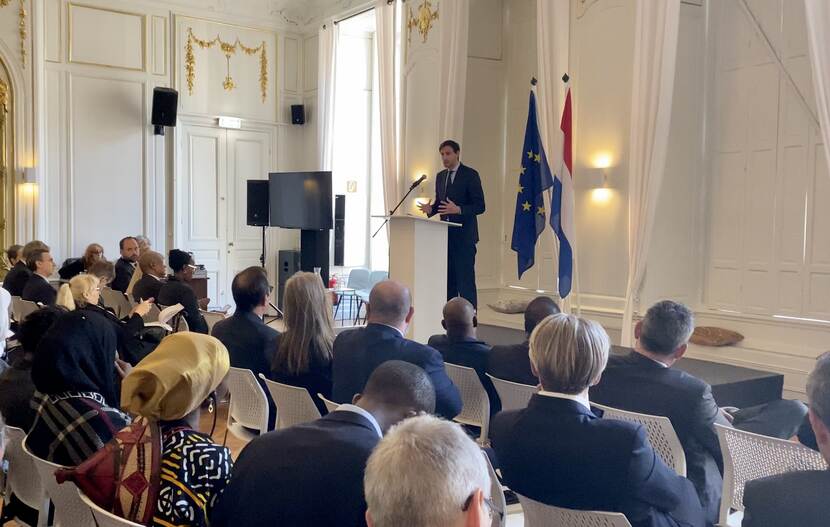Speech by Minister Hoekstra at the Sahel Envoy Conference
Speech by Minister Wopke Hoekstra of Foreign Affairs at the Sahel Envoy Conference in The Hague, on 17 April 2023. The spoken word applies.
Your Excellencies, ladies and gentlemen,
As Envoys working on the Sahel, you all have the privilege of working on one of the most fascinating regions in the world.
A region that spans a vast expanse of Africa, containing an equally vast diversity of peoples, cultures, and countries.
It’s also a region that faces a number of acute challenges.
Like violent extremism, food insecurity, and climate change.
These are all related to greater global trends.
If something happens in the Sahel, we feel the consequences here in Europe – and vice versa.
That’s why it’s excellent you’re having this meeting, and I would like to thank Special Representative Emanuela Del Re for co-organizing it together with the Sahel team at our Ministry.
What you’re discussing here today matters.
For centuries, our continent has been linked with the Sahel region, through trade routes, through shared – if complicated – histories, and through migration.
Today these links are more important than ever: our continued commitment to the Sahel region is crucial.
As you well know, the region is changing. The vast majority of its population is under the age of thirty-five.
Such a young population can lead to a great burst of creativity and productivity, but it could just as well lead to frustration, if there is a lack of opportunities and inclusion.
That’s why we must continue to invest in young people.
I’m glad that a number of young people from the Sahel are here with us today.
Because we cannot do this alone. We should work together with countries and organizations in the region.
By forming equal partnerships, based on our shared mutual interests.
We should listen to what people in this region need, and how we can support them.
This is precisely what the Netherlands will do more.
The Sahel is a priority region for us. We’ve been intensifying our presence and programs where we can.
Soon, we will publish an Africa-strategy, which my colleague Liesje Schreinemacher and I intend to follow up with a letter on our efforts in the Sahel.
We believe the best way to tackle the root causes of poverty, instability, and conflict is through an integrated approach.
There is no simple military solution to the challenges the Sahel faces.
Diplomacy, security, development, and the rule of law should all complement one another.
In the long run, our intent is to help strengthen people’s resilience in fragile regions, as well as to improve the relationship between citizens and their governments.
The best way to achieve this, is through a uniform and coherent international policy for the Sahel region.
The necessity of this becomes crystal clear when we see Russia’s involvement on the African continent.
We can clearly see geopolitical adversaries trying to build coalitions that contravene our values.
We must stop this, and demonstrate that freedom, democracy, and openness are by far the better deal.
We can do this with better global outreach,
By continuing our engagement with civil society, young people, and governments in the Sahel to be a reliable partner.
By gaining a better understanding of our mutual interests. And by making sure we do it together.
What you’re doing these two days is an essential element of this. And I look forward to hearing the conclusions of your meeting
I hope this session will bring us all closer together, and that this – in turn – will support the people of the Sahel to achieve peace and prosperity.
Thank you.
